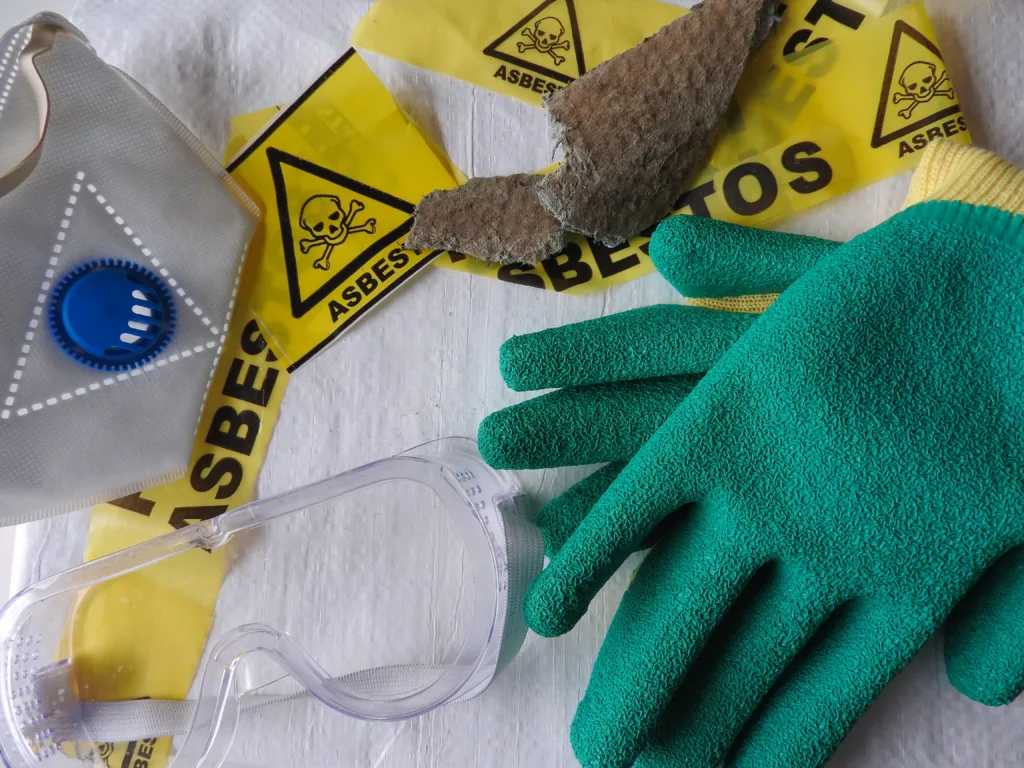Always understand the potential risks and effects that potential asbestos exposure can have on your health. One of the diseases that can develop from asbestos exposure is asbestosis, a chronic lung condition that can cause serious respiratory issues.
If you believe you are experiencing health issues due to asbestos, seek a medical professional for proper testing and diagnosis immediately.
After a diagnosis of asbestosis, you should then seek legal assistance to explore your options for compensation and justice. You can schedule a free consultation with an experienced asbestos injury attorney in Chicago today.
The Development of Asbestosis
Imagine spending years working in an environment filled with asbestos, a naturally occurring mineral with wide usage in various industries for its heat resistance and durability.
At the time, people knew little about the long-term health consequences of asbestos exposure. Now, you find yourself grappling with a chronic lung condition called asbestosis.
The journey from initial exposure to developing asbestosis is a complex and multifactorial process.
Understanding What Causes Asbestosis
Asbestosis directly results from inhaling asbestos fibers over a prolonged period. When asbestos-containing materials are disturbed, tiny fibers get released into the air, and when inhaled, these fibers can become trapped in the lungs.
Over time, this exposure can lead to scarring and inflammation of the lung tissue, impairing its ability to function properly.
Even a brief exposure to high levels of asbestos can increase the risk of developing this debilitating respiratory condition. Additionally, smoking in combination with asbestos exposure significantly accelerates the progression of asbestosis.
How Does Asbestos Exposure Happen?
Asbestos exposure can occur in a variety of ways, depending on the industry and the materials used. Occupations commonly associated with asbestos exposure include construction workers, miners, shipyard workers, insulation installers, and automotive mechanics.
These occupations involve working with asbestos-containing materials such as insulation, pipes, boilers, cement, and brake pads. Asbestos exposure can also occur indirectly if the fibers are brought home on clothing or equipment, putting family members at risk.
How Does Asbestosis Develop?
The development of asbestosis is a gradual process that often takes years or even decades to manifest. Once you inhale the asbestos fibers, they become lodged in the alveoli, tiny air sacs in the lungs.
The body’s defense response attempts to remove these foreign particles, leading to an inflammatory reaction. Over time, this inflammation causes the lung tissue to scar and stiffen, reducing its ability to expand and contract fully.
As the scarring progresses, breathing becomes increasingly difficult, and symptoms of asbestosis begin to emerge.
When Should You See a Doctor?
If you have a history of asbestos exposure, stay vigilant about your respiratory health. While asbestosis symptoms may take years to appear, it is crucial to seek medical attention if you experience any respiratory issues such as persistent coughing, shortness of breath, chest pain, or unexplained weight loss.
Early detection and diagnosis can significantly improve the prognosis and quality of life for individuals with asbestosis.
Symptoms of Asbestosis
The symptoms of asbestosis are often nonspecific and can be mistaken for other respiratory conditions.
The most common symptoms include:
- Persistent coughing: A dry cough that does not go away and worsens over time.
- Shortness of breath: Difficulty breathing, especially during physical activity.
- Chest tightness or pain: A feeling of pressure or discomfort in the chest.
- Fatigue: Feeling constantly tired and without energy.
- Clubbing of fingers: Bulbous swelling of the fingertips due to decreased oxygen levels.
The severity and progression of symptoms can vary among individuals, depending on factors such as the intensity and duration of asbestos exposure, age, and overall health.
Treatment for Asbestosis

Unfortunately, there is no cure for asbestosis, but treatment options are available to manage symptoms, slow down disease progression, and improve quality of life. The primary focus of treatment is to relieve respiratory symptoms and prevent complications.
Your healthcare team may recommend the following treatment approaches:
- Medications: Bronchodilators and anti-inflammatory medications can help open up airways and reduce inflammation in the lungs.
- Oxygen therapy: Supplemental oxygen therapy can improve oxygen levels in the blood and alleviate shortness of breath.
- Pulmonary rehabilitation: This program includes breathing exercises, physical activity, and education to enhance lung function and overall well-being.
- Lifestyle modifications: Quitting smoking and avoiding further exposure to asbestos and other respiratory irritants is crucial to prevent further damage to the lungs.
What is the Prognosis for Asbestosis?
The prognosis for individuals with asbestosis varies depending on several factors, including the stage of the disease, overall health, and lifestyle choices. Early diagnosis and proactive management can significantly improve the prognosis and slow down disease progression.
However, asbestosis is a progressive condition, and in advanced stages, it can severely impact an individual’s quality of life. Complications such as respiratory failure, heart problems, and an increased risk of lung cancer may arise.
Work closely with your healthcare team to develop an individualized treatment plan and regularly monitor your respiratory health.
Know Your Legal Rights After Developing Asbestosis
If you or a loved one has been diagnosed with asbestosis, you must explore your legal rights and options for compensation for your illness and losses. Asbestos exposure and subsequent development of asbestosis are often the result of someone else’s negligence or failure to provide a safe working environment.
By contacting an experienced asbestos injury attorney, you can navigate the legal process and seek compensation for medical expenses, lost income, and pain and suffering. These claims are challenging but necessary for you to have proper support and justice for your future.
Contact an Asbestos Injury Attorney Immediately

Dealing with a diagnosis of asbestosis is challenging, both physically and emotionally. You want the support and guidance of a knowledgeable and compassionate asbestos injury attorney.
A dedicated attorney who regularly handles asbestos-related cases and understands the complexities involved can assess your rights. We are committed to fighting for your rights and helping you seek the justice and compensation you deserve.
Contact a law firm near you that handles asbestos cases to schedule a free consultation. Don’t wait; take the first step towards obtaining the justice you deserve following this challenging diagnosis.



